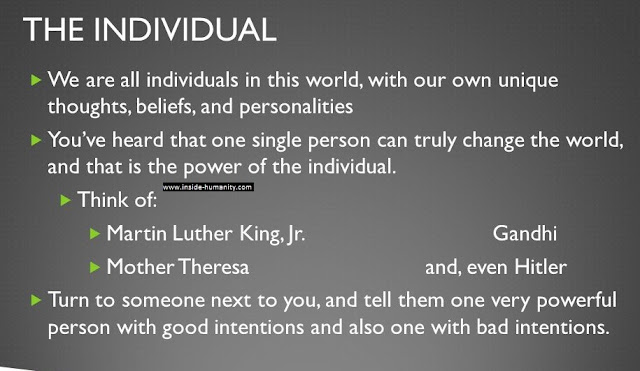Humanity has been the subject of countless philosophical discussions, artistic endeavors, and scientific inquiries. From the ancient Greeks to modern-day scholars, we have always been fascinated by the complexities and contradictions that make us who we are. In this article, we will delve into the depths of humanity and explore some of the key elements that define us as a species.
The Nature of Human Behavior
One of the most interesting and controversial aspects of humanity is our behavior. From birth, we are shaped by a complex interplay of nature and nurture, with genetics and environment both playing key roles in shaping who we are and how we behave.
On the one hand, there is a strong biological component to human behavior. Our genes influence everything from our physical appearance to our cognitive abilities and personality traits. For example, research has shown that genes play a role in our risk of developing certain mental health disorders, such as depression and anxiety.
On the other hand, our environment also plays a crucial role in shaping who we are and how we behave. From the culture we are raised in to the experiences we have throughout our lives, our surroundings have a profound impact on our development and behavior.
One of the most fascinating aspects of human behavior is the way it can vary so dramatically from one person to the next. While we all share certain fundamental characteristics as a species, our unique experiences and circumstances lead us down very different paths. This is part of what makes us so fascinating and complex as a species.
The Role of Emotions in Human Behavior
Emotions are an integral part of the human experience, and they play a key role in shaping our behavior. Whether we are feeling happy, sad, angry, or afraid, our emotions influence the way we think and the decisions we make.
Emotions can be both positive and negative, and they can range in intensity from mild to intense. Positive emotions, such as joy and gratitude, tend to have a beneficial effect on our mental and physical health. They can boost our mood and give us a sense of well-being.
Negative emotions, on the other hand, such as anger and fear, can be more challenging to deal with. They can lead to negative outcomes, such as increased stress and conflict, if not properly managed.
One of the most interesting aspects of emotions is the way they can influence our behavior in subtle and unconscious ways. For example, research has shown that people who are in a positive mood are more likely to make pro-social decisions, such as helping others or volunteering their time. On the other hand, people who are in a negative mood are more likely to make self-centered or even aggressive decisions.
The Importance of Culture and Socialization
Culture plays a significant role in shaping the way we think and behave. From the values and beliefs we hold to the customs and traditions we follow, our culture influences virtually every aspect of our lives.
Culture is passed down from generation to generation through the process of socialization, which begins at birth and continues throughout our lives. As we grow and develop, we learn the norms, values, and behaviors that are acceptable within our cultural group.
Culture can have a powerful influence on our behavior, shaping everything from the way we communicate and relate to others to the choices we make and the goals we pursue. It can also influence our perceptions of the world around us and our beliefs about what is right and wrong. One of the most interesting aspects of culture is the way it can vary so dramatically from one group to the next.
Different cultures have their own unique set of values, beliefs, customs, and traditions, and these differences can lead to vastly different ways of life. In addition to culture, socialization also plays a crucial role in shaping who we are and how we behave. As we interact with others and form relationships, we learn how to behave in social situations and develop a sense of self.
Through socialization, we learn about our place in the world and how to interact with others. We develop a sense of identity and learn about the expectations and roles that are associated with our gender, age, and cultural group.
The Power of the Individual
Despite the influence of nature, nurture, and culture, it is important to remember that individuals have the power to shape their own lives and make their own choices. While we may be influenced by the world around us, we are ultimately responsible for the decisions we make and the paths we choose.
The power of the individual is evident in the way that people from different backgrounds and circumstances can achieve success and happiness in their own unique ways. It is also evident in the way that people can overcome adversity and challenges, even in the face of seemingly insurmountable odds.
Ultimately, the power of the individual lies in our ability to think, reason, and make decisions for ourselves. It is what allows us to shape our own lives and create our own destinies.
Conclusion
In conclusion, humanity is a complex and multifaceted phenomenon, shaped by a combination of nature, nurture, and culture. Our behavior is influenced by our genes, our environment, and the cultural values and beliefs we are raised with.
Emotions play a key role in shaping our behavior, and culture and socialization shape the way we think and interact with the world. Despite these influences, individuals have the power to shape their own lives and make their own choices.






0 Comments
Thank you. We'll reply you shortly.